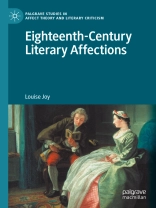This book assesses the mediating role played by ‘affections’ in eighteenth-century contestations about reason and passion, questioning their availability and desirability outside textual form. It examines the formulation and idealization of this affective category in works by Isaac Watts, Lord Shaftesbury, Mary Hays, William Godwin, Helen Maria Williams, and William Wordsworth. Part I outlines how affections are invested with utopian potential in theology, moral philosophy, and criticism, re-imagining what it might mean to know emotion. Part II considers attempts of writers at the end of the period to draw affections into literature as a means of negotiating a middle way between realism and idealism, expressivism and didacticism, particularity and abstraction, subjectivity and objectivity, femininity and masculinity, radicalism and conservatism, and the foreign and the domestic.
Mục lục
1. Chapter 1: Introduction: Affective Knowledge.- 2. Chapter 2: Model Affections.- 3. Chapter 3: Literary Passions.- 4. Chapter 4: Novel Feelings.- 5. Chapter 5: Translated Emotions.- 6. Chapter 6: Poetic Pathos.- 7. Chapter 7: Epilogue: Literary Affections.
Giới thiệu về tác giả
Louise Joy is Fellow, Director of Studies in English, and Vice-Principal of Homerton College, University of Cambridge, UK. She is the author of Literature’s Children: The Critical Child and the Art of Idealization (2019) and has published widely on eighteenth-century literature and the history and philosophy of education.












